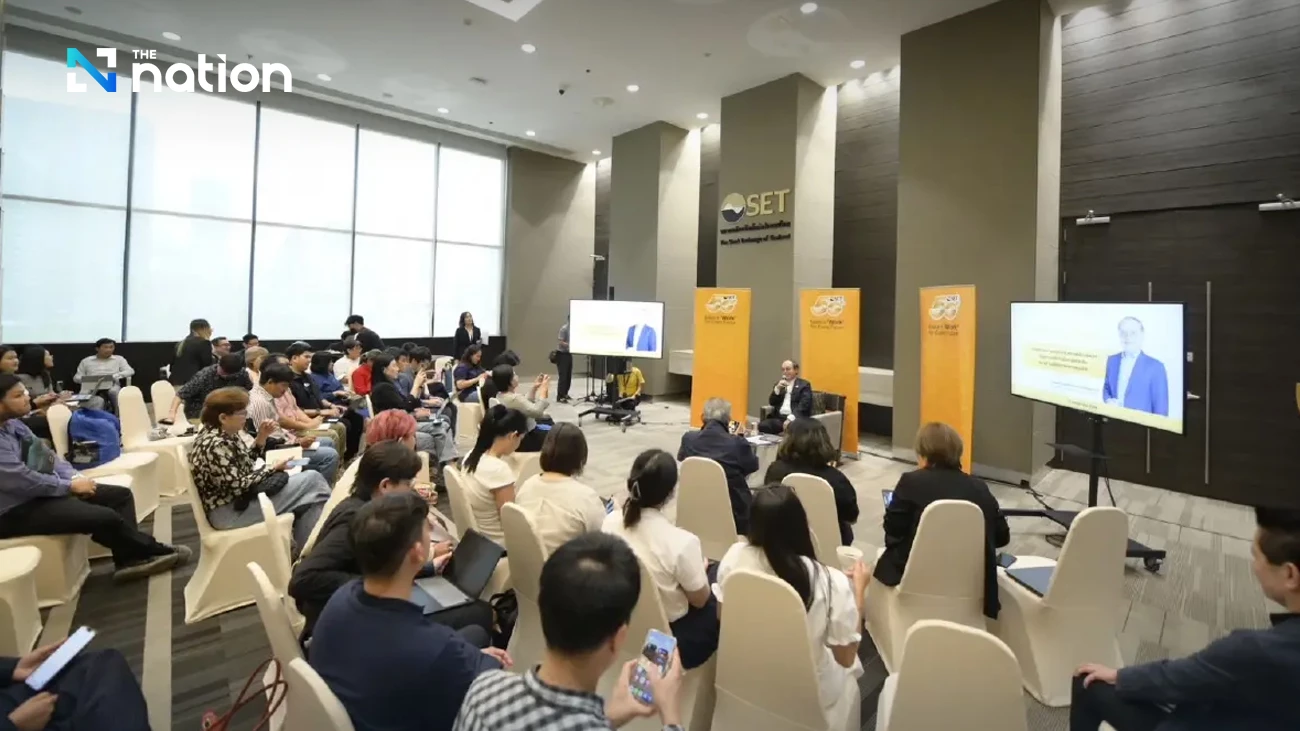
The countdown is now just 100 days until Prof Kitipong Urapeepatanapong completes his term as Chairman of the Stock Exchange of Thailand (SET) on August 5, 2025. The Securities and Exchange Commission (SEC) is expected to decide soon whether to appoint a successor or extend his tenure, with clarity anticipated by July.
Since assuming the chairmanship on 15 May 2024, Kitipong has navigated the Thai stock market through significant turbulence. At the start of his term, the SET index hovered around 1,100 points, experiencing fluctuations amid serious challenges, including fraud, volatile investor confidence, issues surrounding short selling, high-frequency trading (HFT), and automated trading allegedly disadvantaging retail investors.
The Stock Exchange has been proactive in implementing reforms to promote a fairer playing field. Notably, it has tightened regulations to eliminate naked short selling, requiring short sellers to hold the underlying shares. Currently, proposals are underway to allow short selling on SET100 stocks. Over the past 12 months, the exchange has also revised eligibility criteria for companies listing on both the SET and the Market for Alternative Investment (mai).

Kitipong highlighted the success of the recent Treasury Stock Buyback scheme. Between January and April 2025, 37 listed companies repurchased shares worth nearly 6 billion baht, a significant increase compared to the entire year of 2024. This inflow of capital has improved valuation metrics such as price-to-earnings (P/E) and price-to-book value (P/BV) ratios.
New regulations are expected to allow companies to participate in buyback programmes immediately without the previous six-month waiting period, and extend the resale window for repurchased shares from three to five years. These changes are set to take effect by May.
Plans for a New Trading Board
Looking ahead, the SET is preparing to launch a “New Economy” project aimed at attracting innovative companies and startups in technology and cloud sectors, both domestic and international, to list on the Thai market. These companies will be allowed to trade without the usual requirement of profitability for 3–5 years. Large corporates such as PTT, SCC, and WHA, which plan spin-offs, can also list under this initiative.
“We are currently considering establishing a new trading board to accommodate these New Economy stocks, alongside the existing SET, mai, and LiveX platforms,” Professor Kitipong explained. “We need to finalise what incentives we can offer to attract these companies and how listing on the Thai market will benefit them.”
Encouraging Brokerage Mergers
Another focus is the consolidation of brokerage firms. Currently, 39 securities companies operate in Thailand, but the exchange aims to reduce this number to 18 to strengthen the sector’s resilience and growth potential. This move comes amid declining business performance, market volatility, and reduced trading volumes.
To facilitate this consolidation, the SET plans to introduce incentives to encourage brokerage mergers, supporting a more robust and competitive financial ecosystem.
6 Key Initiatives: Continuing the Momentum
SET remains committed to advancing six critical initiatives as follows:
- JUMP+ Project, Bond Connect Platform, and Carbon Credit Ecosystem
- New Economy – attracting foreign companies, startups, and large corporations planning spin-offs to trade on the Thai stock market
- Thailand Individual Saving Account (TISA) – promoting long-term investment with tax exemptions on dividends, with potential future integration of token-based trading
- Implementation of AI technology to assist in analysis for listed Thai companies
- Family Business support initiatives
- Advocating for legal reforms to establish a stronger foundation for capital market development
“We hope that these initiatives, developed in cooperation with the Ministry of Finance and the SEC, will be driven forward with utmost dedication. What we have done, are doing, and will continue to do is relentless. Over the past year, I believe I have passed the test and not failed. Whether I get an extension depends on the SEC’s decision, but if I am kindly asked to continue, I am ready,” said Kitipong .


